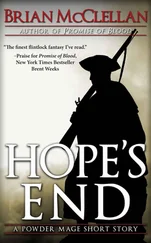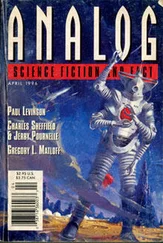“Quit living in the past,” he told her, and she began to cry. Fifteen miles down the road Sarah wondered if the girl would quit her job instead. It might do the trick.
She laid out the postcards the next morning over breakfast, writing one long sequential letter that flowed over all twelve. On each she gave instructions as to who was receiving the next card.
“What are you doing ?” Adrienne asked, on her third cup of coffee and only now coming alive.
“I’m manipulating our friends from across the country,” she said. “They’ll have to get together for a party and everyone brings a postcard just to make sense of anything. It’ll be in our honor and we won’t even be there. I’ll let you know when it’s time for you to sign the last card.”
Through the steaming scents of pancakes and bacon and eggs she noticed Clay’s unwavering gaze, locked from across the table upon the postcards. “You can sign it too,” Sarah told him.
“What’s it like,” he said quietly, “having a dozen people to write to? When I first left Minneapolis, I tried sending a few letters to people from high school, but no one answered.”
Perhaps it was too early in the morning, her every essence exposed and unprotected, but the question bit, and bit hard. It came perilously close to drawing tears, for as she saw him stare at the postcards, ugly things though they were, she realized that he would view them as something far more. Seeing them as people he would never meet, never know, lives he could never touch even if he had the skills.
“It’s like… being part of a tribe,” Sarah said. Having noticed that Adrienne had paused with bitten lip, her coffee cup halfway between table and tongue.
He looked across the diner, at the menagerie of travelers and locals, nothing in common but the morning and four greasy walls. “The modern tribal character, I don’t think it’s defined by its members. You know who really defines it?”
“Who?”
“Its outcasts,” he said, then got up, and said he would wait in the car, that to wait in the cold would do him good, and she understood.
One could shiver only if one was alive.
* * *
Sarah continued to dwell upon tribes along the road, as they crossed into North Carolina. Clay had given driving a whirl this morning, giving it up when a headache sent him to the backseat. He moaned and wondered aloud if the bones of the skull did not at times loosen just enough to crash into one another for the sake of the pain it would cause, plate tectonics between parietal and occipital, temporal and sphenoid.
“ I need a tribe, a primitive tribe, where everything is so elemental,” he said, rising up to gaze out the window. “Science failed me, pretty much, I think. Psychology’s just held its own — no offense. Maybe what I really need is a shaman.”
Adrienne looked at Sarah from behind the wheel, and it seemed friendly enough. They had been peaceable but had kept their hands to themselves for the past couple of days, and the primary thing she’d felt for Adrienne — though the last she would admit to her face — was pity. Every mile driven, to Chapel Hill and to Boston, was just another step toward the altar of her obsolescence in the mystery of Helverson’s syndrome.
“Isn’t this more your field?” Adrienne spoke with an air of deference. If there was resentment she hid it well. “Tell us a story.”
Sarah blanked for a moment, all the tales she had absorbed over her lifetime dissipating into dust, forgotten like cultures buried by aeons. Then she found one, a new tale, perhaps the one to bridge all the gaps inside this car.
“Once upon a time, not very long ago at all,” Sarah said, and they grew as still as children, “there was a budding — and some would say exasperating — anthropologist. She’d just traveled from the desert land of her birth to the land of the mountain people, so she could be with someone she loved very much, who in turn was off trying to help a mountain man she cared a lot about. It wasn’t long before the anthropologist and her lover got into a teensy argument, and the lover said something about the anthropologist finding a lost tribe in the mountains. And the anthropologist said all the lost tribes were gone, just about, that the next time one was found, that’d probably be it, there wouldn’t be any more.
“Now, although she didn’t much let on, the thought of that made her more sad than she even would have expected, because she knew just who she was thinking about, a tribe she’d only heard rumors about, so she decided she never wanted them to be found, because the possibility of them being out there was a lot more important than the confirmation. The living mystery was more important than having it solved. And because if they were found, they wouldn’t get to remain who they were anymore, it just never seems to happen that way. People who’re found when they don’t know they’re lost seem to lose an awful lot in the finding. So maybe it’d be better for them, and for us, if they stayed lost.”
Sarah paused to sip at a bottle of grapefruit juice. She was the only one moving, the other two poised and tuned in, waiting. She felt embarrassingly in control; she really had them.
“The people the anthropologist was thinking about, they were mountain people too, but way at the frontiers at the edge of the world, almost, in the mountains of the Gobi desert in Mongolia. Mountains and deserts… it wasn’t until she was talking with her lover that the anthropologist came to truly appreciate the allure and the power of both places, because lies have a harder time living in them. So it seemed to her that this last lost tribe must have the best of both worlds where they were.
“The local Mongols called these people almas , and knew enough about them to describe them, and said they were short and stocky, and hairy, with broad features. Very crude clothes, made of animal skins, mostly. But not even the Mongols who’d lived around there nearly forever could talk with them, because their words were so different, and the almas were very shy people, too. But the Mongols did find the almas would trade with them, so they’d leave a parcel of skins or something on the ground, in the open, or on a big rock, where the almas could find it, and when they’d come back later it’d be gone, with something else in its place. Some other skins or tools or food that had been gathered… obviously things that the almas thought had enough value to represent them to the people they were too shy to meet, and whose words they could never understand.”
Sarah took another drink of her juice, and teased her tiny audience with more silence.
“So word got out, even from a region as remote as the Gobi Desert, and everyone who made it a point to pay attention to such things wondered who and what the almas really were. Obviously they were there, and not imaginary. The Mongols didn’t have any reason to be making anything up. Finally, what a lot of people decided the almas might be was a surviving tribe of Neanderthals… still alive in one of the wildest places on earth, where there wasn’t even a rain forest to draw in outsiders just so it could be cut down. The kind of place that was valuable only to the people who lived there… even the ones supposed to have been gone for forty thousand years. So it made the anthropologist wonder something: Do the almas still know something the rest of us have forgotten?”
She heard Adrienne give a satisfied, throaty chuckle.
“And that’s where the story ends, I guess,” she said, with a soft and hopeful smile toward the highway, toward the east, toward the other side of the world. “As far as the anthropologist knows, the almas are still there, still trading with their neighbors, and no one can say for sure who they are. Which is the way it should stay. So the story ends with the mystery and the wonder intact… just the way all good tribal legends should end. Because shamans know that’s the part of the story that teaches the lesson.”
Читать дальше












